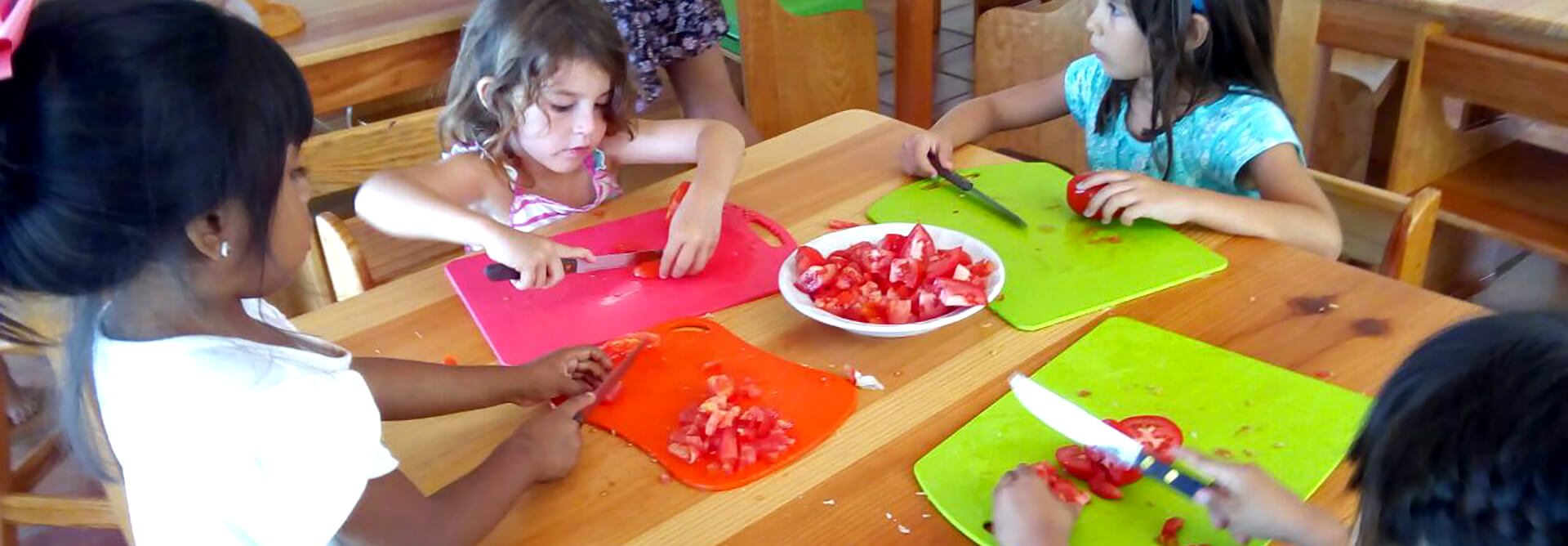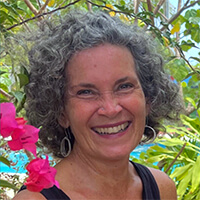I’ve come to realize that many adults think of Self-Directed Education as something risky or even dangerous. For that reason, I’ve decided to write about the risks that do come with choosing such a different education, where the children are the ones who have both the control and responsibility over their own learning.
The fact that there aren’t many schools based on this method that offer an official degree is, perhaps, the first risk. What you desire as a parent is not only “the best” for your children, but also what seems “safest”. I mean, who doesn’t prefer to jump with a parachute?
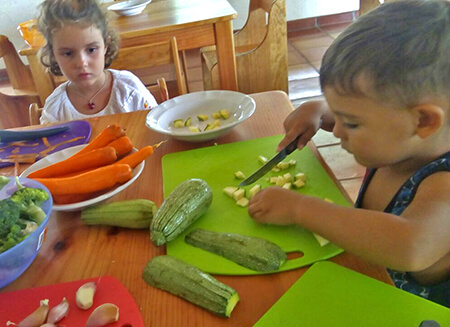
In the process of considering the options for your children, it probably seems that a degree validation from the Ministry of Education is the safest parachute. What you really want is something that assures your children’s success in life, and you feel that that particular piece of paper can guarantee it.
What you really haven’t figured out yet, is the fact that a degree can never guarantee such a thing. Your children’s success depends entirely on themselves and on certain abilities that, unfortunately, they do not learn in the conventional education system. I’m talking about initiative, decision making, problem solving, responsibility, perseverance, resilience, and obviously, creativity.
But going back to Self-Directed Education, why do many think that it implies risks?
First, because it means letting go of control over children. If you choose an education based upon the principle that children themselves decide what to learn and when, then you, as a parent, can’t control them. And that’s a great challenge in a society where we think that because we are adults we not only know more, but are also better than children (since they haven’t lived as long as us). It can be terribly frightening to challenge that idea and that might feel risky to you. It’s always difficult to change the paradigm – especially when it means letting go of control.
Because then another risk automatically appears: letting go of control means that you will have to trust in your children’s capabilities. That means trusting that they are capable of defining what they need to learn in their lives – and also when and where. And often as a parent you don’t believe they really are capable of all that.
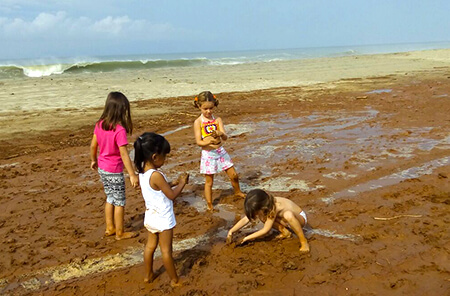
Despite the amount of scientific research that proves that they are in fact capable (and even when you read it all), this research is in such contrast to the current paradigm that it will seem to you that there is a lot of risk involved in even trying to trust in your children. And you’ll try to justify it, thinking that, maybe it works in Europe or in the USA, but here, in Latin America, we aren’t there yet. However, in general, this is a projection: maybe you don’t trust in yourself and that stops you from being able to trust in your children. If this is the case, then obviously you’ll perceive Self-Directed Education as a great risk.
Now, if you enroll your children in a school based on Self-Directed Education, or if you decide to unschool your children, other things are going to emerge that you will probably perceive as risks as well...
For instance, if your children have the power to decide what to do, that means they will begin to take initiative and make their own decisions, and that will definitely feel like a risk for you. Because, what if they make a decision that goes against what you think is “best”?? What if, for instance, they want to climb a very high tree? Or if they want to climb to the roof of your house? Or spend a whole week watching YouTube? Or putting on makeup all day long and gossiping with friends?
Surely you won’t like it. You’ll think they aren’t “properly” evaluating the risks that involve their physical abilities (“my child can’t calculate the risk”). Or that they’re wasting their time on useless activities (“my daughter can’t prioritize the important things in life” or “my children spend their time just playing”). And you’ll think it is highly risky to enroll your kids in an educational model based on trusting them. You’ve already got plenty of “proof” that you can’t (and shouldn’t) trust your children because they choose to dedicate themselves to “useless” tasks instead of something more “productive”. And you’d better not let go of control now since “you know what they need better than they do”.
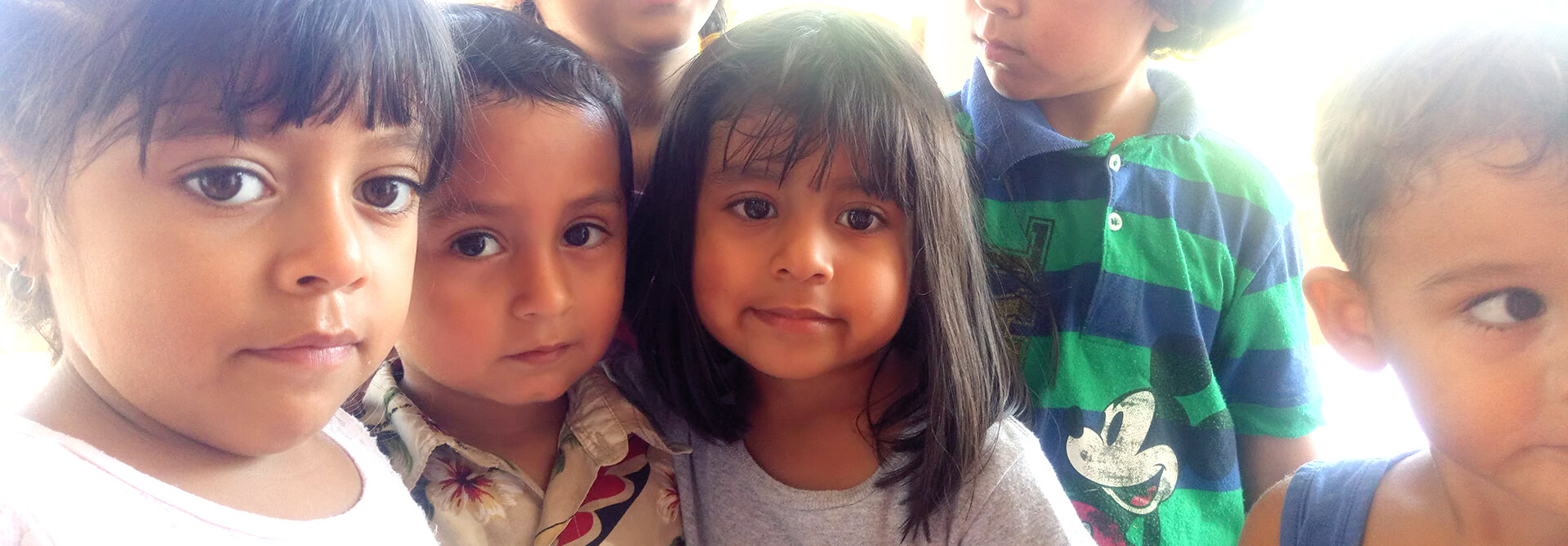
Now, if we put aside your judgement and ideas and challenge your mind a little: how can you know what is the best for your children? How can you know what is their life path, their mission, their passion? Do you know that several studies indicate that 80 to 90% of the current professions won’t exist in 20 years? Have you ever thought about the possibility that the majority of the future’s emerging jobs haven’t been invented or even imagined yet? So then, how can you know what’s best for your children?
What if your daughter dedicates herself to something as “superficial” as fashion? And you, thinking it isn’t serious, forbid her from doing what she likes the most... and without realizing it, you take away the possibility of her becoming an expert in design?
What if your son, “who’s wasting his time watching YouTube”, is learning things that are vital for him? Like how to build something he is interested in, or accumulating information about something he’d love to do himself but needs to get enough inspiration before trying it out.
What if your children are developing their critical thinking skills as they begin to compare the YouTube publications, and begin verbalizing why some are good and others are not so good? Or what about those children “so daring that they don’t measure risks and always want to do the most dangerous things”? It is possible that they are learning something valuable? What if they’re discovering their own physical limits, and learning how to challenge their bodies and see what they’re capable of? Maybe they’re getting over some of their fears, and learning to solve problems they encounter during their explorations, forcing themselves to be creative because they decided to put themselves in a complex situation and they know they can figure it out. Those are the skills that will truly serve them in life, and they are things they would never learn in a conventional school.
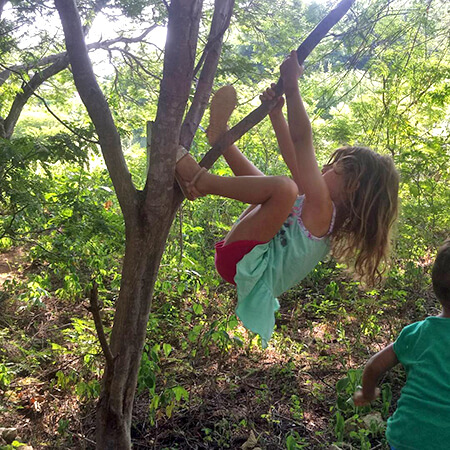
“But they could hurt themselves!” Certainly. They could hurt themselves and that is something that happens. It might seem too risky to allow them to explore their physical limits, but, did you know that children get hurt more in organized and competitive sports than when freely exploring without adult supervision? Did you know that children learn to deal better with their emotional disappointments and psychological challenges as adults, thanks to their physical risk taking during their childhood?
The truth is that you, as a parent, don’t know what your children are really learning, but you’d like to stop them. Because you do not have control, and you simply can’t understand how they could possibly learn anything relevant doing things you don’t comprehend. And that you perceive as a risk as well.
But, maybe what you’d see as the biggest risk, is that under Self-Directed Education, your children, while making their own decisions and taking initiative, are going to make mistakes. They are going to fail during their attempts. If you have a tendency to overprotect, because you don’t trust your kids ability to be resilient (getting up after a failed attempt, and trying again and again), then you’ll definitely find this kind of education very risky.
Furthermore, when you let go of control and begin to trust your children then they will develop their own will, and they will express it fully, and they will appear to be disobedient and rebellious. But what you might fail to see is that, at the same time, your children are becoming independent. This should not be seen as a risk, but I understand there are parents who do not want to see their children become independent. They want to see them small and dependant forever. That way they are easier to control. It doesn’t matter if it interferes with the children’s ability to create an emotional and material self-reliant life.
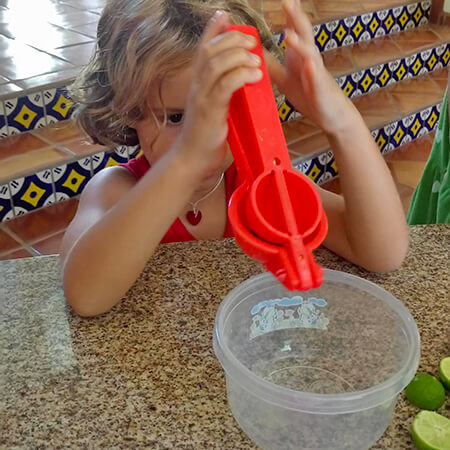
In conclusion, there are many “risks” in Self-Directed Education. Your children will become independent, with a great ability to take initiative and make their own decisions. They will be creative and talented at solving problems and finding new solutions. They will challenge you constantly and force you to develop and grow as a person. They’ll develop a strong will that will sometimes clash with yours. They will question methods of authority; yours, and that of certain laws and institutions. They will live through failures and experience mistakes, and they’ll develop perseverance and resilience. Dealing with all that can prove very challenging if you, as a parent, aren’t quite ready to step down from your adult throne from where you have all of the control.
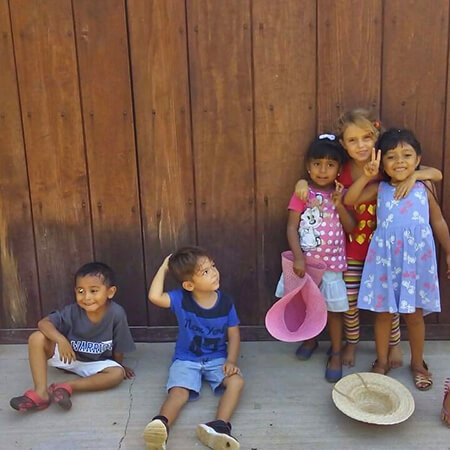
The last risk of Self-Directed Education is that your children will become so different from others that, perhaps, they won’t fit in in society. That could be perceived as a risk if you absolutely want them to be classical employees who obey orders and do what they are told. It might also be seen as a risk if you think society is perfect just the way it is. However, if you have no problem with your children becoming innovative human beings, entrepreneurs, responsible for who they are and capable of creating their own life and figuring out what they need to support themselves, or if you think it’s time for society to change, Self-Directed Education is everything but a risk.
On the contrary, it is a great solution for all families, who, like you, want to empower their children, and provide them with the most significant abilities there are to guarantee their success in the future. It’s also, in my opinion, the beginning of the solution to many problems in our society.
This article was originally published in Tipping Points on September 18, 2017. The English translation was added May 6, 2019.
If you enjoyed this article and feel called to give back to ASDE, here are ways you can support our work:
- Donate money
- Share our content with others! Click one of the buttons above to easily share on Twitter, Facebook, or email.
- Consider becoming a Contributor for Tipping Points
Tipping Points Magazine amplifies the diverse voices within the Self-Directed Education movement. The views expressed in our content belong solely to the author(s). The Alliance for Self-Directed Education disclaims responsibility for any interpretation or application of the information provided. Engage in dialogue by reaching out to the author(s) directly.


